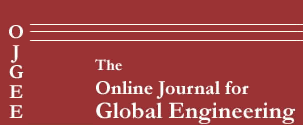Abstract
The University of Rhode Island takes pride in the fact that 20% of its undergraduate engineering students complete a Bachelor of Arts degree in German, French or Spanish (and soon Chinese) along with their BS engineering degree. Its distinctive International Engineering Program (IEP) is characterized by the two degrees, but also by the fact that each IEP student spends the fourth year of the five-year curriculum abroad, completing a semester of study at a partner university and a six-month internship with affiliated global companies. Over 200 undergraduates have completed the IEP curriculum, which is now well institutionalized in the culture of the University of Rhode Island.
IEP faculty have recently expanded the program to the graduate level through implementation of a Dual Degree Masters Program with the Technical University of Braunschweig. Students in this program complete half of their masters work at both institutions, and the thesis abroad, with oversight from faculty at both schools. At the conclusion students receive the MS from the University of Rhode Island and the Diplom from the Technical University of Braunschweig.
Building on the Dual Degree Program, URI faculty are now creating an International Ph.D. Program in partnership with Braunschweig and the National Science Foundation. Recently awarded a grant from the NSF Program in International Research and Education, URI faculty plan to develop a comprehensive international education program for the benefit of all engineering students, from day one of the freshmen year through the post-doctoral level.
This paper presents a basic overview of the URI International Engineering Program at the undergraduate and graduate levels. It focuses on the value added through the experience of engineering work and study abroad, as well as on the lessons learned over the seventeen year history of the URI program, in an effort to share such insights with interested colleagues from other institutions.
Recommended Citation
Grandin, John M.
(2006)
"Preparing Engineers for the Global Workplace,"
Online Journal for Global Engineering Education:
Vol. 1:
Iss.
1, Article 3.
Available at:
https://digitalcommons.uri.edu/ojgee/vol1/iss1/3
